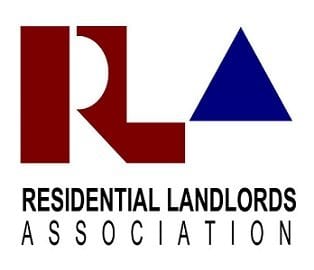Energy efficient homes are good for tenants and good for landlords says RLA
Read latest news story from Residential Landlords Association (RLA) released 8th August 2018: ‘Greater Ambition Needed on Energy Efficiency of Rented Homes’.
LANDLORDS are calling on the Government to be more ambitions when it comes to the energy efficiency of rented housing.
Since April, all new or renewed private sector tenancies require properties to have at least an ‘E’ rating on their Energy Performance Certificate. From 2020 that will apply to all private rented homes.
Whilst the Government is considering raising this target to a C rating by 2030, the Residential Landlords Association is calling on policy makers to be more ambitious for the sector.
In its forthcoming submission to the Treasury ahead of the Budget , the RLA will call for all private rented homes to be as energy efficient as possible.
To achieve this, it wants all work carried out by landlords that is recommended on an Energy Performance Certificate (EPC) to be considered a tax deductible repair. This would encourage a culture of continuous improvements to properties rather than simply meeting set targets and leaving them there.
New research by the RLA’s research body , PEARL, has found that 37 per cent of landlords with properties rated F or G are unable to afford to bring their property up to at least an E rating. On average, such landlords reported that it would cost them almost £5,800 to bring their properties up to the required standard.
Previous research by RLA PEARL has found that 61 per cent of landlords reported that tax relief for energy efficiency works would encourage them to improve the energy efficiency of their properties.
With Ministers having previously withdrawn the Landlord Energy Savings Allowance because of a lack of take up, the RLA argues that targeted tax relief for energy improvements could be more readily taken up in combination with the back stop of minimum targets to reach. This would increasing the take up of the tax relief.
The proportion of private rented homes with an Energy Performance Rating of F or G has fallen from just over 25% in 2006 to under 7% in 2016.
The Committee on Climate Change’s (CCC) annual report has found that the UK is on track to miss its legally binding future carbon budgets, due to the lack of progress in cutting emissions from buildings.
RLA Policy Director, David Smith, said:
“Whilst progress has been made, we need to be more ambitious for the country’s stock of private rented homes.
“Energy efficient homes are good for tenants and good for landlords. That is why we need to use taxation far better than we do at present to encourage a continuous culture of energy improvements.
“Using recommendations on Energy Performance Certificates in this way is a clear and easy way of achieving this and we call on the Chancellor to adopt the policy in his Budget.”
Source of information RLA









